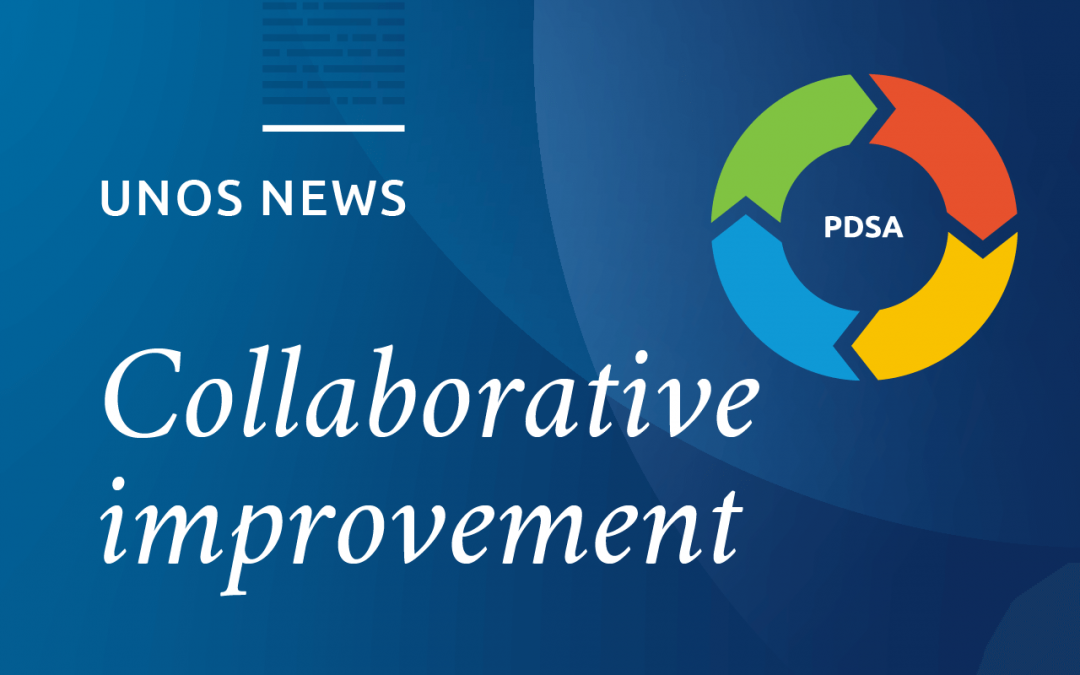United Network for Organ Sharing has launched the Organ Procurement and Transplantation Network (OPTN) DCD Lung Transplant Collaborative, a national initiative to support efforts to increase the transplantation of donation after circulatory death (DCD) lungs by identifying and sharing effective practices.
More than 40 percent of the nation’s adult lung transplant programs – 29 in total – are participating in the project. They will be guided by UNOS performance improvement specialists in an “all teach, all share, all learn” environment that provides focused time, space and support for collaboration on improvement projects. The National Academies of Sciences, Engineering and Medicine (NASEM) have noted the success of UNOS collaboratives in the donation and transplant community and recommend a continued emphasis on sharing of effective practices.
Collaborative to address variation in practices, aims to increase organ transplantation
The volume of DCD lung transplants performed in the U.S. varies among programs, even while data indicates that DCD lungs can be transplanted with favorable outcomes[i], and while organ procurement organizations (OPOs) continue to recover DCD donors at increasing rates. The DCD Lung Transplant Collaborative seeks to address this variation in practice. This project will foster improvement efforts via a collaborative framework, and encourage organizational learning and community sharing to drive improvement.
The 29 participating hospitals are:
- Baylor University Medical Center (Dallas, Texas)
- Cedars-Sinai Medical Center (Los Angeles, Calif.)
- Cleveland Clinic (Cleveland, Ohio)
- Duke University Hospital (Durham, N.C.)
- Froedtert Memorial Lutheran Hospital (Milwaukee, Wis.)
- Hospital of the University of Pennsylvania (Philadelphia, Penn.)
- Inova Fairfax Hospital (Falls Church, Va.)
- Loyola University Medical Center (Maywood, Ill.)
- Medical University of South Carolina (Charleston, S.C.)
- Memorial Hermann Hospital, University of Texas at Houston (Houston, Texas)
- Mount Sinai Medical Center (New York, N.Y.)
- New York-Presbyterian Hospital/Columbia University Medical Center (New York, N.Y.)
- Newark Beth Israel Medical Center (Newark, N.J.)
- Luke’s Health Baylor College of Medicine Medical Center (Houston, Texas)
- Joseph’s Hospital and Medical Center (Phoenix, Ariz.)
- Stanford Health Care (Stanford, Calif.)
- Tampa General Hospital (Tampa, Fla.)
- The Ohio State University Medical Center (Columbus, Ohio)
- UC San Diego Health (San Diego, Calif.)
- UF Health Shands Hospital (Gainesville, Fla.)
- University Health Transplant Institute (San Antonio, Texas)
- University Hospitals of Cleveland (Cleveland, Ohio)
- University of California at Los Angeles Medical Center (Los Angeles, Calif.)
- University of California San Francisco Medical Center (San Francisco, Calif.)
- University of Kentucky Medical Center (Lexington, Ky.)
- University of Minnesota Medical Center (Minneapolis, Minn.)
- University of Nebraska Medical Center/Nebraska Medicine (Omaha, Neb.)
- University of Pittsburgh Medical Center (Pittsburgh, Penn.)
- University of Utah Medical Center (Salt Lake City, Utah)
The collaborative kicked off eight months of active participant engagement in December 2022. During successive four-month periods, participants will focus their performance improvement efforts on internal and external change concepts involving optimizing internal transplant processes and patient care practices and strengthening collaboration with OPOs. After the active engagement period concludes in July 2023, a project evaluation period will take place through September 2023.
UNOS brings collaborative improvement projects to the community
OPTN Collaborative Improvement projects focus on process and performance improvement rather than innovation, research, or policy development. While each project is designed with a different aim, they loosely follow the Model for Improvement developed by the Institute for Healthcare Improvement. Teams use a Plan-Do-Study-Act (PDSA) approach to identify areas of improvement, test interventions, track progress, and implement changes.
Learn more about Collaborative Improvement. For more information, email [email protected]
[i] Levvey, B.J., Harkess, M., Hopkins, P., Chambers, D., Merry, C., Glanville, A.R. and Snell, G.I. (2012), Excellent Clinical Outcomes From a National Donation-After-Determination-of-Cardiac-Death Lung Transplant Collaborative. American Journal of Transplantation, 12: 2406-2413. https://doi.org/10.1111/j.1600-6143.2012.04193.x

